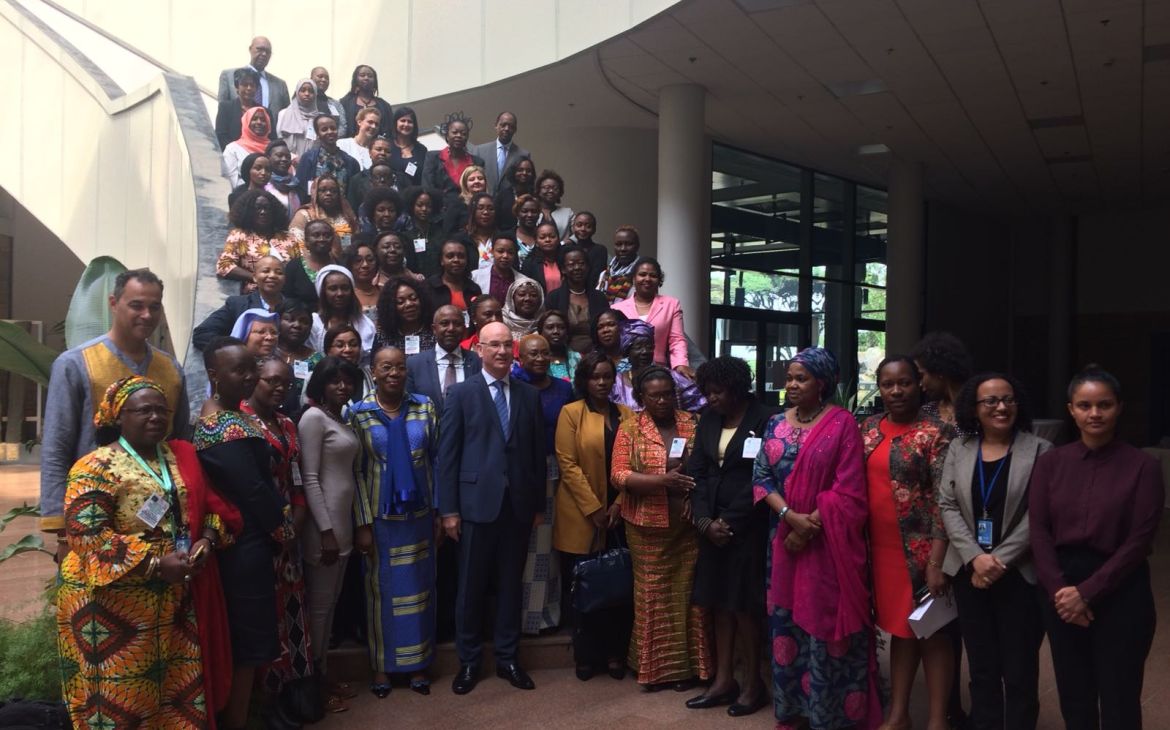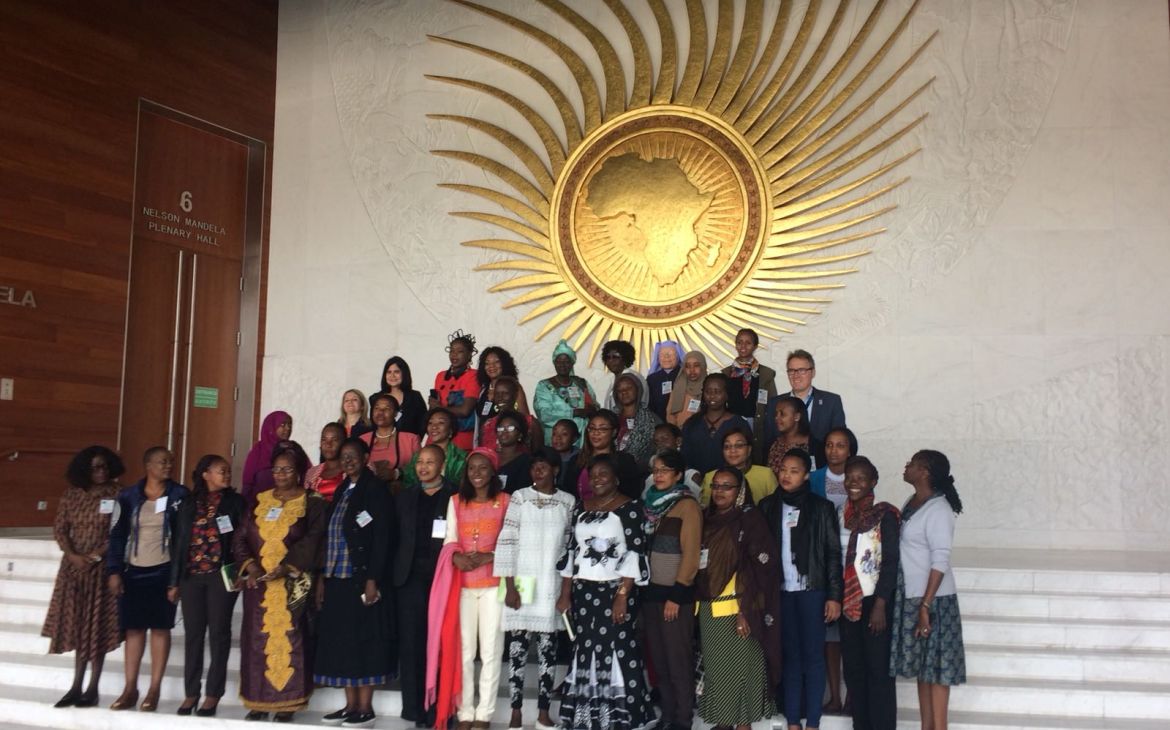Recognizing the centrality of effective multistakeholder partnerships in accomplishing global and regional commitments towards the 2030 Agenda, the Division for Peace has multiplied efforts to strengthening the African Union-United Nations partnership enshrined in the Joint UN – AU Framework for Enhanced Partnership in Peace and Security. As the main regional body mandated to prevent and mediate conflict and sustain peace across the African continent, the African Union is an essential partner in achieving the Division for Peace’s sub-Objective of Supporting institutions and individuals to contribute meaningfully to sustainable peace (SO 1, UNITAR Strategic Framework 2018-2021). In 2019, the Division for Peace has identified a number of synergies with departments and entities within the African Union in order to strengthen and expand its peace-related programming in a twofold spirit of sustainability and local ownership. The Division for Peace has harnessed its growing relationship with the African Union in order to develop its capacity building portfolio in innovative directions, spearheading new programmes and services in thematic areas such as Youth Empowerment, Women Peace and Security, and Institutional Gender Mainstreaming.
In April 2019, UNITAR’s support has been requested by the Steering Committee of the African Women Leaders Network (AWLN) to provide support in enhancing the effectiveness, visibility and outreach of the AWLN. UNITAR and the AU Office of the Special Envoy on Women, Peace and Security are currently institutionalizing a partnership aiming to design and implement a Knowledge Management Platform which will serve the entire Network as a repository of knowledge, good practices and lessons learned on women’s leadership; a capacity building roster; and the foundation of an ongoing intergenerational mentorship scheme. Furthermore, the Division for Peace is currently working with the AU Gender peace and security programme to develop and implement a comprehensive capacity building package for the AU Peace and Security Department staff and all components of the African Peace and Security Architecture (APSA) on gender mainstreaming and issues pertaining to the implementation of the Women Peace and Security agenda.
In addition, in 2019, the Division for Peace secured funding from Belgium, as well as significant pledges and commitments from other Member States, for the implementation of capacity-building activities aiming to operationalize the Network of African Women in Conflict Prevention and Mediation, known as FemWise-Africa. In July 2019, UNITAR successfully organized and convened a five-day Induction Training for incoming members of the Network and will continue this capacity building process rolling out a set of trainings on mediation, conflict prevention and leadership for peace for Francophone members in the coming four years. This long-term commitment showcases the Division for Peace’s determination to make a substantive contribution to the objective of enhancing women’s meaningful participation at all levels and in all capacities in decision making and peace processes, a goal without which Goal 16 of the 2030 Agenda on Just, Peaceful and Inclusive societies has no hope of being achieved.
Before the end of the year, the Division for Peace will once again convene the two-day High-Level Seminar on peace and security in Africa: Assisting African members of the UN Security Council in preparing to address peace and security issues on the continent. Since 2013, the Division has been gathering representatives of African countries nominated to be part (incoming members) or being part (sitting Members) of the UNSC, as well as representatives of the AU Peace and Security Council in order to foster collaboration on processes that promote regional approaches to address peace and security challenges and to promote the development of a shared vision among relevant stakeholders.
Looking forward, the Division for Peace will strive to expand its contribution to youth empowerment and youth participation in peace and security processes. While the Division continues to support the ongoing Peace process in Colombia through its work with conflict-affected youths and their communities, it aspires to leverage the lessons learned and tools developed in this context to serve youth beneficiaries across the African continent. The Division is currently exploring synergies and pathways for collaboration with the African Union Youth Envoy on youth empowerment for peace and is looking forward to strengthening and displaying its commitment to reach and support the leaders of today and tomorrow.



